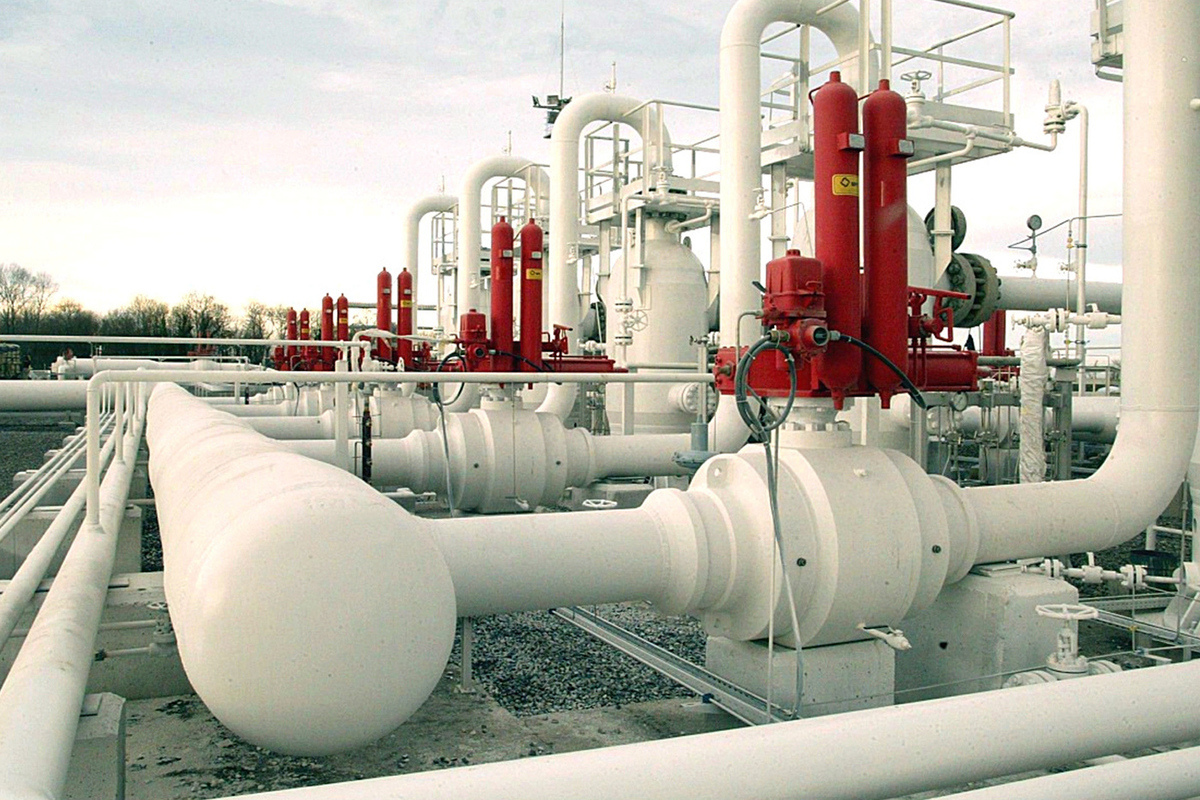Moscow and Ankara have returned to the idea of a gas hub: it will bring $2 billion a year
[ad_1]

Experts: Türkiye demands new energy preferences from Russia
The topic of creating a gas hub in Turkey, through which Russia will be able to increase exports of “blue fuel,” was again put on the agenda by the two countries. This week, a delegation from Ankara is going to visit Moscow to resume negotiations on the implementation of an ambitious project. Most likely, technical details will be discussed: the “road map” and the conditions under which the electronic trading platform for the sale of hydrocarbons will operate. It is possible that the Turks will demand discounts on energy resources for the further resale of Russian raw materials to the European Union, whose members have refused to purchase gas from our country.
The visit of the Turkish delegation to Moscow regarding the creation of a new point for the purchase and distribution of Russian gas is still shrouded in secrecy: sources in industry departments indicate only that negotiations will take place any day now, but the details of the agenda have not been disclosed. It is only known that the delegates expect to regulate the calendar of joint actions and speed up work on organizing a gas hub. As Russian Deputy Prime Minister Alexander Novak previously stated, it cannot be postponed any further. Moreover, an agreement in principle on this project was reached at the very top: between the heads of state – Vladimir Putin and Recep Tayyip Erdogan.
Let us recall that the gas hub in Turkey is a new transport route for the supply of Russian “blue fuel” to Europe. The possibility of implementing this idea has been under study since the end of 2022. The route promises to replace gas supplies from our country through Germany, the volumes of which have practically been reduced to zero due to sabotage at Nord Stream. The basis of the hub, that is, the point of sale and redistribution of “blue fuel”, is the existing Turkish Stream pipeline, which passes through the Black Sea and reaches land on the border with Greece. This is a very convenient location, suitable for expanding transport infrastructure, which, even without serious additional investments, can increase the supply of Russian gas further to Europe. The pipeline’s capacity from the initial 32 billion promises to grow over time to 64 billion cubic meters, which will allow Russia to get rid of its transit dependence on Ukrainian pipelines.
Due to the imposition of new energy sanctions on Russia in 2023, as well as the dramatic consequences of a powerful earthquake in Turkey, the signing of “paper” directives regarding this highway was suspended. American suppliers rubbed their hands: they believed in the possibility of increasing their own supplies of liquefied gas to European consumers instead of Russian pipeline ones. But now the situation may change again in Moscow’s favor. “The implementation of a gas hub in Turkey is at the stage of a project under development,” says Ruslan Andreev, an expert at the Polilog Group. — The start of consultations in 2024 may move the process forward. The next step in approving the action calendar should be the final legal registration of the hub.”
Theoretically, nothing drastic will be required to start operating a gas station in Turkey. “The project of a raw materials hub on the Black Sea shores of Turkey has been developing for several years,” says Oleg Kalmanovich, chief analyst at Neomarkets. “Against the background of periodic cooling and subsequent rapprochement of Russian-Turkish relations, the organization of a common gas exchange remains a key issue in relations between Moscow and Ankara.”
Creating a gas hub does not require large investments. Such a platform is formally only a virtual exchange where the cost of supplies, their timing and volumes are agreed upon. In essence, it is necessary to develop and connect software, and bidders will be able to sign transactions themselves through transnational agreements through payment systems independent of sanctions claims against Russia. Such a platform, according to Dmitry Aleksandrov, head of the analytical research department at IVA Partners, “should combine access to significant physical volumes and have a sufficient number of trading participants connected to the settlement system. It is important that payments flow freely.”
It appears that issues of international legal trade space are currently the main obstacle to the continuation of the project. Last April, the Turkish Parliament began the process of introducing legislative amendments necessary for the operation of the hub. “The upcoming meeting of the working group on the construction of a gas hub in Turkey will be aimed at agreeing on the roadmap and all legal aspects that will speed up the implementation of the project,” explains Freedom Finance Global analyst Vladimir Chernov. Organizing an electronic trading platform is not a complicated process, because IT specialists from both countries are able to create such a site in the shortest possible time.
Another thing is that Ankara, understanding Moscow’s interest, will most likely demand discounts on Russian gas due to Western restrictions on the export of our hydrocarbons and the risks associated with their resale. The discount, as on Russian export oil, can reach 15%. “Türkiye plans to export 40 billion cubic meters of gas in 2024. The cost of a thousand cubic meters of “blue fuel” in Europe is now $319. It turns out that full supplies from Russia will cost $12.7 billion, and its re-export will bring Turkey up to $2 billion,” Chernov calculated.
[ad_2]
Source link






